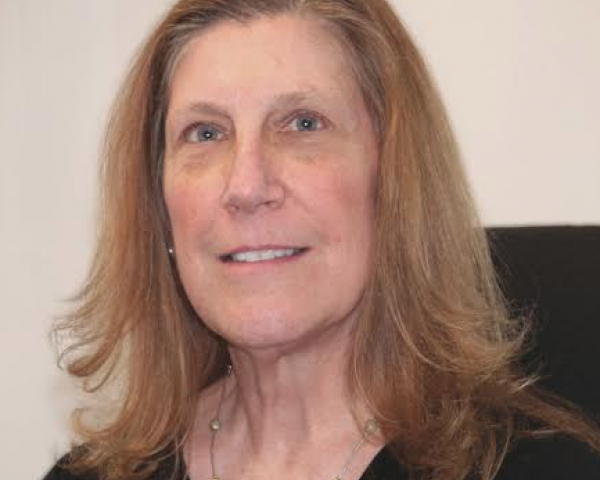If you just landed your first job in the insurance business, chances are that you’re focused on that new position, not necessarily on what comes next in your career. You’re probably plenty busy doing what’s necessary right now—learning the new job, adjusting to a new company culture and hustling to prove yourself. You’re giving 100% to succeeding in your new role.
That’s smart, especially considering that most new hires have less than two weeks to prove themselves on the job, according to
new research from Fullbridge and Harris Poll. One in four executives say that employers take only two weeks to decide whether an entry-level new hire will be successful. Other executives say that it will take longer, but all agreed that it takes less than three months. With stats like that, it makes sense that long-term career goals take a back seat to making a great first impression.
But while you’re settling into the rhythm of your new gig, you should make time to outline a basic road map for the rest of your career. As your early career moves away from entry-level positions and into more specialized roles with more responsibility, giving some thought to your future goals and plans can have a huge impact on your overall career trajectory.
See also: The Many Paths to a Career in Risk
There’s plenty of traditional advice available for people early in their career. A lot of that information is good, but there’s also more current insight applicable to young professionals. Here’s our breakdown of four ways to chart a course early in your career and figure out what makes you happiest on the job.
1. Don’t job hop—department hop
Young professionals today have a reputation for switching jobs a lot more often than previous generations do. Recent research shows that this characterization is
largely unearned. Young people tend to switch jobs more often than older workers, but millennials aren’t switching at a higher rate than young adults of past generations did.
Changing jobs early in your career has its benefits, including a chance to earn more money and exposing yourself to more aspects of the industry. But there are downsides, too. Switching jobs is hard work, and some of it may be unrelated to learning the insurance business. You’ll need to learn to adapt to a new company culture. You may need to relocate. You may have to build your network of work friends and go-to leaders all over again. In short, you’re almost starting from scratch each time you switch organizations.
Many young professionals have found a happy medium in department hopping. With the right organization, young insurance pros can gain hands-on experience in a variety of insurance disciplines through shorter stints in different departments. This gives you an opportunity to talk to different managers about salary ranges and your career priorities, and you can learn more about the industry without starting over at a new organization. If you’re interested in switching departments, take a look at Lifehacker’s advice for
having that conversation with your boss.
2. Don’t find just a mentor—find a sponsor
There’s no doubt that finding a mentor early in your career is extremely important. Many of the insurance professionals profiled on The Community cite
finding a mentor as one of the
most essential components of their early-career success. Mentors play a key role in career growth, but the Harvard Business Review argues that there’s another supporter you need in your corner: a sponsor.
While mentors take a comprehensive look at your career (and often your personal life), a sponsor is someone within your current organization who can act as your advocate. It should be an executive or another leader who offers career guidance “by making important introductions to senior leaders, expanding the perception of what you can offer the organization and offering powerful backing to help you soar and protection when you stumble,” according to author
Sylvia Ann Hewlett.
3. Don’t just network—learn more about the industry
So much of the focus on early career development is on networking. Make no mistake—growing your professional network is important. But for young professionals, pure networking events like happy hours and meet-ups aren’t the most efficient way to meet other insurance pros and find new opportunities.
Early in your career, there are plenty of ways to learn about the industry that also offer networking as a key secondary benefit. Look into industry designations. (
AINS is a great way to get a comprehensive look at the insurance industry to figure out which elements of the business interest you most.) Or you can register for an
industry conference and bring a stack of business cards. You also have a much better chance of getting your employer to chip in for these kinds of experiences.
As you work to gain greater industry insight and expertise, forging relationships with other soon-to-be designees or conference participants will come naturally. And those relationships will be rooted in the pursuit of industry knowledge and career interests rather than personal ambition and cocktail-party chatter.
See also: Work/Life Balance … Your Tightrope to a Rewarding Career
4. Don’t just think about goals—write them down
One last small piece of advice for charting your career: once you determine some concrete goals, write them down. Recent
research from Dominican University of California found that individuals who write down their goals and share them with others are far more likely to achieve them than people who didn’t write them down or tell others about them.
Writing down your goals and sharing them—perhaps with your sponsor or growing professional network—go a long way toward making you accountable for achieving them. As you advance in your career and take advantage of new opportunities in a quickly changing industry, make sure to refer to your written goals and update them regularly.
Have you found success charting your career goals? Let us hear your best tip in the comments section below.


